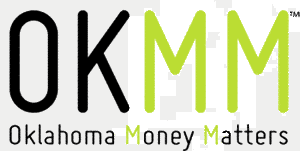8 Steps to Budget Bliss - Oklahoma Money Matters
8 Steps to Budget Bliss
- Live Within Your Means
Don't spend every penny you make. There's nothing wrong with wanting nice things, but many students try to live a lifestyle they can't afford with money they don't have. Choosing to live with less doesn't necessarily mean doing without; skip buying some- thing you don't need today so you can have something better in the future. - Track Your Money
To make the best budgeting decisions for your lifestyle, you need to know where your money goes. Keep all your receipts for a month, then list the amounts, grouping similar expenses together. You'll see some obvious patterns emerge; these are your current spending priorities. What needs to change? - Prioritize Spending
Since we can't have everything we want, we have to prioritize. Once we know what's truly important to us, cutting back on less important items really isn't a sacrifice. While rent, car, and student loan payments are fixed expenses that must be paid, eating out and going to the movies are luxuries that may have to be delayed until a later time. Use the worksheet on the next page to create a monthly spending plan. Be sure to include annual expenses, like property taxes and insurance; figure the monthly average by dividing the total bill by 12, then add it to your spending plan. - Pay Yourself First
Saving should be part of your monthly budget, not something you do if money is left over. Before you spend a single dollar of your paycheck, identify a portion as savings. Treat savings like a fixed expense. Set money aside each month just as you do for your rent or student loan payment. Don't be discouraged if you can't save a fortune right off the bat. Whether you can save $10 or $100 this month, start now. You can always increase your savings later; it's making it a habit that counts. - Build a Safety Net
Now that you've made saving a priority, start an emergency fund to provide a financial cushion for unexpected expenses, like car repairs. Aim to save about 10% of your income each month until you have enough money saved to cover a few months' living expenses. If 10% seems impossible, start at a lower percentage and work your way up. If you have a safety net, you won't have to rely on credit cards or payday loans in a crisis. - Tackle Credit Card Debt
Managed well, a credit card can be a useful financial tool; however, if you've racked up more credit debt than you planned to, save your card for emergencies only and focus on paying off the debt you owe. Always pay more than the minimum payment due! To save on interest, tackle the credit card with the highest interest rate first or, for faster satisfaction, pay more on the card with the smallest balance. When one balance is fully paid, add that payment to the payment for another account. Repeat these steps until all accounts are paid in full. - Pay with Cash
For a while, try paying for everyday items (lunch, coffee, gum) with cash. This makes it easier to see where your money is going. Constantly paying daily expenses with a credit or debit card may not "feel" like spending money. Handing someone your cash will make you stop and think about the importance of the purchase. - Make Room for Fun
Don't forget to include money for entertainment; that's a classic budgeting mistake. Most of us have to work to live, but don't live to work. All budgets should allow a bit of fun and flexibility!
This information presented in cooperation with Oklahoma Money Matters, the financial education outreach initiative of the Oklahoma Guaranteed Student Loan Program. For more information about OKMM, visit www.oklahomamoneymatters.org or call 1-800-970-OKMM.

